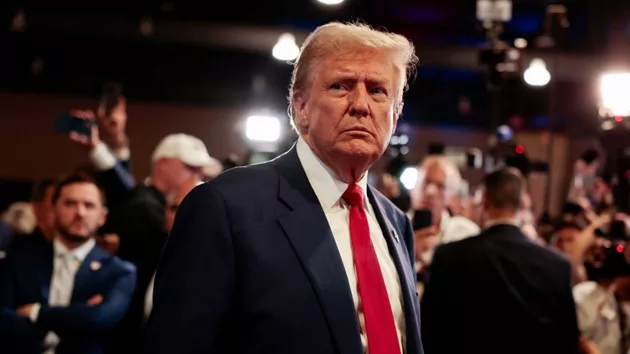In a turn of events that surprised many, Donald Trump responded to disappointing post-debate poll results in a way that only he could—through a barrage of eccentric social media posts. Following a debate performance that many pundits and analysts criticized, Trump saw a drop in support, with a new Reuters/Ipsos poll showing Vice President Kamala Harris pulling ahead of him by five points. Rather than addressing the situation head-on, Trump took to his social platform, Truth Social, to post a series of bizarre AI-generated images and cryptic messages.

Among the more peculiar posts was an AI image of a kitten holding a sign that read, “Kamala hates me,” followed by another image of kittens pleading not to be “eaten” while urging followers to “Vote for Trump.” These odd images were just the beginning of Trump’s unusual response. He reposted a House Judiciary GOP account’s AI-generated picture of himself hugging a kitten, surrounded by ducks and geese, captioned “Cats for Trump.” He also shared an image of himself running from a group of Black people with a caption suggesting voting for Trump was necessary to save him from being “eaten.” These posts, featuring outlandish imagery and messages, baffled both supporters and critics alike.
Adding to the strangeness of the social media frenzy, Trump reposted an image of Elon Musk with the word “Doge” overlaid on it, further blending internet meme culture with his political messaging. Simultaneously, advertisements for Trump-branded merchandise such as “Bulletproof Trump Whiskey Glasses: Assassination Edition” appeared alongside his posts, blurring the lines between campaigning and commercializing his brand.
In another bizarre twist, the social media platform also promoted a post advertising “mail-order brides” while Trump’s messages flooded the timeline. His posts were not only eccentric but also raised eyebrows for their casual propagation of conspiracy theories and xenophobic rhetoric.
One of the most disturbing aspects of Trump’s recent behavior is his repeated amplification of a debunked conspiracy theory involving Haitian immigrants in Springfield, Ohio. During the debate and in subsequent posts, Trump falsely claimed that Haitian immigrants were eating pets, including cats and dogs, in the town. This claim has been thoroughly discredited by local officials, including Springfield’s city manager and police department, yet Trump continues to push this narrative, creating a dangerous atmosphere of fear and xenophobia.
Despite these baseless claims, prominent figures in the MAGA movement, such as Senator Ted Cruz and Representative Marjorie Taylor Greene, have echoed Trump’s conspiracy theories. Greene went as far as to bring up the notion of Haitian migrants eating pets during a hearing, perpetuating the xenophobic narrative.
Meanwhile, Trump’s peculiar social media activity and divisive rhetoric have not gone unnoticed. Voters are increasingly distancing themselves from the former president. During a recent CNN panel, a Republican voter was asked about Trump’s behavior and explained her decision to switch allegiance to Kamala Harris, stating simply, “Because she behaves more like a human.” This sentiment echoes what many former Trump supporters are feeling—that his behavior has become too erratic, and his divisive language has crossed too many lines.
While Trump has always been known for his unconventional approach to politics, his recent actions have left even some of his staunchest supporters questioning his ability to lead. As polls continue to reflect declining support for his campaign, it remains to be seen whether Trump will adjust his strategy or continue down the path of inflammatory rhetoric and bizarre social media antics.
For now, it seems that Trump’s reaction to receiving terrible news after the post-debate poll drop is to double down on the absurdity, hoping that humor, memes, and fear-mongering will somehow reignite his base. However, with growing discontent among both moderates and even some Republicans, this strategy may further alienate key voters and put his 2024 aspirations at risk.




